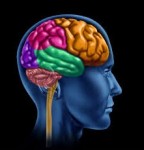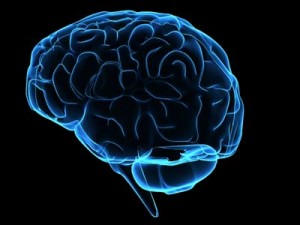 When the mind is at rest, the electrical signals by which brain cells communicate appear to travel in reverse, wiping out unimportant information in the process, but sensitizing the cells for future sensory learning, according to a study of rats conducted by researchers at the National Institutes of Health.
When the mind is at rest, the electrical signals by which brain cells communicate appear to travel in reverse, wiping out unimportant information in the process, but sensitizing the cells for future sensory learning, according to a study of rats conducted by researchers at the National Institutes of Health.
The finding has implications not only for studies seeking to help people learn more efficiently, but also for attempts to understand and treat post-traumatic stress disorder — in which the mind has difficulty moving beyond a disturbing experience.
During waking hours, brain cells, or neurons, communicate via high-speed electrical signals that travel the length of the cell. These communications are the foundation for learning. As learning progresses, these signals travel across groups of neurons with increasing rapidity, forming circuits that work together to recall a memory.
It was previously known that, during sleep, these impulses were reversed. In the current study, the researchers found that these reverse signals weakened circuits formed during waking hours, apparently so that unimportant information could be erased from the brain. But the reverse signals also appeared to prime the brain to relearn at least some of the forgotten information. If the animals encountered the same information upon awakening, the circuits re-formed much more rapidly than when they originally encountered the information.
“The brain doesn’t store all the information it encounters, so there must be a mechanism for discarding what isn’t important,” said senior author R. Douglas Fields, Ph.D., head of the Section on Nervous System Development and Plasticity at the Eunice Kennedy Shriver National Institute of Child Health and Human Development (NICHD), the NIH institute where the research was conducted. “These reverse brain signals appear to be the mechanism by which the brain clears itself of unimportant information.”
Their findings appear in the Proceedings of the National Academy of Sciences.
The researchers studied the activity of rats’ brain cells from the hippocampus, a tube-like structure deep in the brain. The hippocampus relays information to and from many other regions of the brain. It plays an important role in memory, orientation, and navigation.
A graphic illustration of a reverse firing neuron is available at: http://www.nichd.nih.gov/news/releases/Pages/031413-neurons-image.aspx.
Source: NIH

 Eating fish at least once a week could help lower older patients' risk of developing dementia, according to Cyrus Raji, MD, PhD, from the University of Pittsburgh and colleagues reported at the Nov. 2011 Radiological Society of North America meeting.
Eating fish at least once a week could help lower older patients' risk of developing dementia, according to Cyrus Raji, MD, PhD, from the University of Pittsburgh and colleagues reported at the Nov. 2011 Radiological Society of North America meeting.